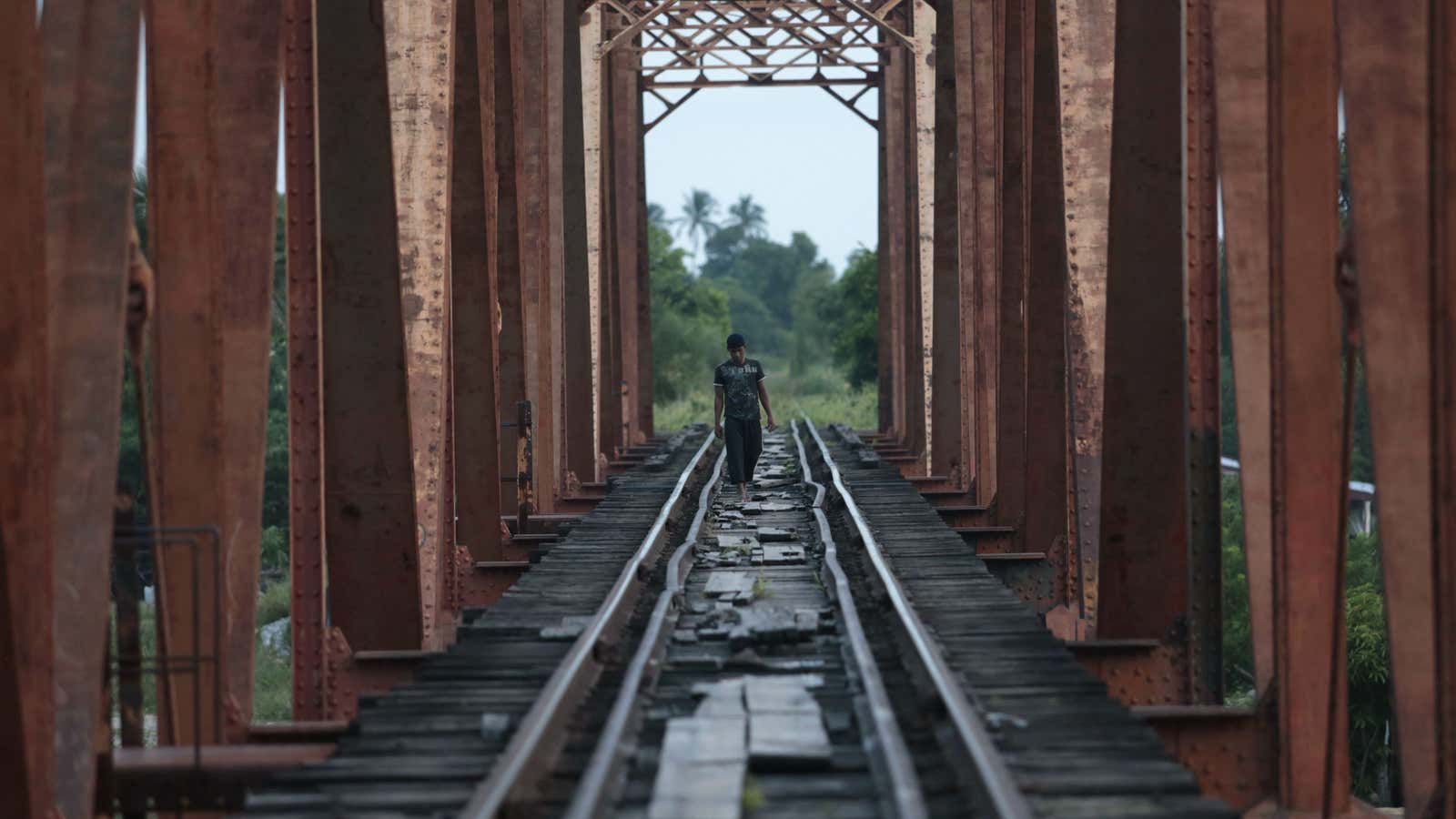As a wave of Central American immigrants overwhelmed the US last year, overcrowding detention centers and clogging up the court system, US officials sought help from Mexico to curb the flow.
Now it’s Mexico that is largely dealing with the influx of migrants who continue to flee north to escape violence and poverty in their home countries. And in Mexico, those immigrants often fare worse than in the US, according to a new report from the Washington Office on Latin America (WOLA), a human-rights advocacy group.
Mexican officials have fewer resources to house immigrants and to process their asylum claims. There are also fewer nonprofits offering legal help. As a result, many of the Central Americans who are caught in Mexico are quickly turned back to their countries, even if they qualify for refugee status, says Maureen Meyer, a senior associate at WOLA.
“Everything that is problematic in the US is almost compounded in Mexico,” she tells Quartz.
Mexico aggressively stepped up enforcement along its southern border after thousands of Central American families and unaccompanied children illegally crossed the US-Mexico border last summer. The effort, which is partly funded by the US, has rendered noticeable results: The number of apprehensions of Central Americans in Mexico jumped by 71% between July 2014 and June 2015 from the previous year, according the WOLA report. Meanwhile, US officials are stopping fewer Central American migrants.
Although by law it’s easier to gain asylum or refugee status in Mexico than in the US, many Central American immigrants are not being informed by Mexican officials that they have a right to apply, WOLA found. Fewer than 30% of unaccompanied children detained in Mexico knew they had a right to seek protection, according to a 2013 poll (link in Spanish) by the United Nations High Commissioner for Refugees.
Some of those who file applications abandon them because of overcrowded and unsafe conditions at detention facilities, where they have to wait 45 days or more for their cases to be resolved, the report states. Immigrants who stick to the process find it hard to get legal help. Pro bono lawyers are scarce and don’t readily have access to the detention centers, according to WOLA.
The agency that handles such claims, the Mexican Commission for Refugee Assistance (COMAR in Spanish), has 15 agents for the whole country. In 2014, it only granted refugee status to 451 people, about 21% of all requests, WOLA says.
Mexico’s National Migration Institute, which enforces immigration laws, did not immediately respond to requests for comment.
Some in the US are worried about the effects of shifting border enforcement south. On Nov. 2, a group of 49 members of the US House Representatives sent a letter to US president Barack Obama saying that in addition to helping its Southern neighbor guard its border, the US should also “ensure that Mexico’s migration laws are enforced in a way that upholds Mexico’s international commitments and our shared values.”
